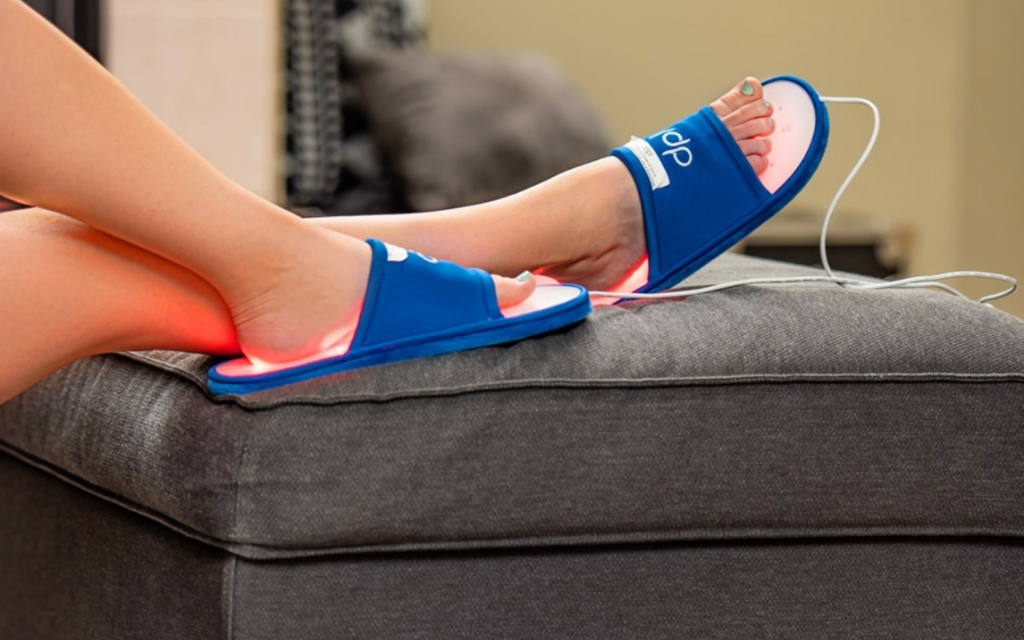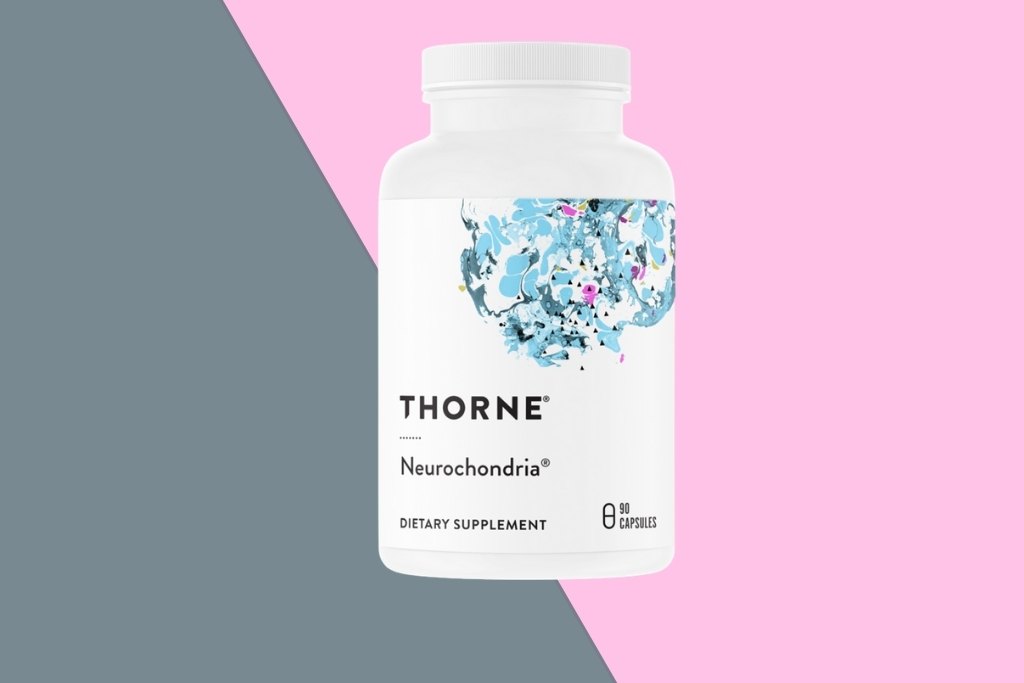Products are independently selected by our team. If you purchase a product in any article, Modern Neuropathy may get a small commission, which helps fund this content for you.
We know that nutritional supplements — in addition to a healthy diet — can help to prevent nerve damage, reduce symptoms, and encourage nerve regeneration. But which supplements for neuropathy are essential? Here is the rundown.
Nutrients are essential for the chemical processes that our bodies are continuously undergoing to make new cells, repair damaged tissues, and maintain the parts of every body system.
Ideally, we should get them from our food. However, deficiencies arise when our diets don’t include enough whole nutrient-dense foods, like an abundance of vegetables, plus fruits, quality proteins, healthy fats, and some whole grains.
On top of this, many people these days have problems in their digestive system that cause damage to the walls of the stomach and intestines. This damage prevents adequate breakdown and absorption of foods and their nutrients.
Combined, we are not eating enough nutrients and are not efficiently absorbing the nutrients we do intake — together leading to a lack of the foundational nutrients our bodies require to perform its vast and varied tasks. Nerve health and repair among them.
On the flip side, too much of certain nutrients can have a negative impact too, especially on nerves. Vitamin B-6 is one of them. And there are a good many people who have caused their neuropathy by overdoing supplements. Rarely, anyone will ever overdo nutrients from food, but it is easy to overdo with supplements.
Use Caution When Taking Supplements for Neuropathy
While conservative use of supplements is generally considered safe, there is cause for being cautious and doing your homework before starting new supplements.
Generally, supplements are not subjected to the same scientific scrutiny or as regulated as medications. Yet, they can still have medication-like effects. Anything strong enough to produce a positive effect is also strong enough to carry risk.
Also important to note is that not all supplement brands are the same in effectiveness, quality, or safety. And some even contain potentially damaging ingredients.
Choose High-Quality Brands
It’s well worth the extra money to purchase quality products from highly reputable brands with strict quality assurances that avoid harmful contaminants and bioavailable versions of nutrients.
You’ll pay a little more, but you’ll get a lot more in safety and effectiveness.
Avoid Counterfeit and Expired Supplements
Unfortunately, there are a lot of counterfeit supplements being peddled for discount prices to attract consumers on platforms like Amazon. While getting a counterfeit sneaker isn’t such a big deal, counterfeit supplements can be exceedingly risky.
Not only are counterfeit supplements an ongoing challenge on marketplace platforms, but it is not uncommon to find expired and rancid supplements being sold that have been sitting on shelves under less-than-ideal conditions for too long.
When deciding whether to take any supplements, always take precautions.
Talk to Your Doctor First if You Have Kidney Disease
Talk to your doctor before using supplements if you have reduced kidney function. The last thing you want to do is create another, even more serious, issue.
Now for the top eight most essential vitamins and supplements for peripheral neuropathy, those that are particularly beneficial to the health of your nervous system.
1. Vitamin B-12 (Meythcobalamin) for Neuropathy
Vitamin B-12 is considered essential for nerve health. In fact, it is so essential to nerve health that low enough levels can cause peripheral neuropathy.
A lack of B-12 damages the myelin sheath that surrounds and protects nerves. Without this protection, nerves cease to function properly.
The following factors may put you a a higher risk for not getting enough vitamin B-12 from diet alone (1, 2):
- Following a vegetarian or vegan diet
- Regular consumption of alcoholic beverages
- Lack of intrinsic factors caused by endocrine-related autoimmune disorders, such as diabetes or thyroid disease
- Intestinal diseases, like Crohn’s disease, celiac disease, and bacterial overgrowth
- Stomach or intestine surgeries, such as bypass surgery or bowel resection
- Specific genetic mutations, such as MTHFR, MTRR, and CBS
- Being over 50 years old
Not only is supplementation of vitamin B-12 important if deficient, but studies show that vitamin B-12 can improve conditions involving nerves even without a proven deficiency (3).
Studies show that vitamin B-12 can help restore the structure and function of nerves (4), thus relieving the symptoms of diseases like peripheral neuropathy.
Benefits of Vitamin B-12 for Neuropathy
The benefits of vitamin B-12 for neuropathy, as outlined in a 2017 study review include:
- Relieve pain and inflammation
- Improve nerve function
- Speed up nerve tissue regeneration
- Rebuild the protective nerve myelin sheath
For these reasons, it is one of the most recommended vitamins for nerve damage.
Dosing Vitamin B-12 (Methylcobalamin) for Neuropathy
Since B-12 is a water-soluble vitamin, it’s generally considered safe, even at high doses. No maximum daily dose has been established for B-12 due to its low level of toxicity. Your body excretes whatever it doesn’t use.
There is some evidence suggesting that high doses of B12 may negatively impact kidney disease over 1mg/1,000mcg per day (5).
Vitamin B-12 supplements can be found in several forms. Methylcobalamin is the activated form best for utilization and is considered the most effective in treating diseases (6).
More research is needed to establish dosing guidelines for supplementing with vitamin B-12 for specific conditions.
Ultra-high doses of methylcobalamin are appearing in research to treat peripheral neuropathies (7, 8) and clinically in ranges of approximately 1mg (1,000mcg) to 5mg (5,000mcg).
2. Folic Acid (Folate) for Neuropathy
Folic acid (vitamin B-9) is considered essential for nerve health. In fact, it is so essential to nerve health that low enough levels can cause peripheral neuropathy.
Benefits of Folic Acid (Folate) for Neuropathy
Recent studies are showing that supplementing with folic acid provides these benefits:
- Promotes nerve repair
- Increases myelination
- Protects nerves from damage due to diabetes
- Works with vitamin B-12 to reduce nerve pain
A 2019 study showed that supplementing with folic acid is helpful for peripheral nerve repair. The study also combined folic acid with vitamin B-12, finding together they work to reduce nerve pain (9).
Folic acid improved peripheral nerve healing and increased axon myelination in a 2015 study (10).
In a 2016 study, folic acid was shown to protect against diabetic peripheral neuropathy by upregulating nerve growth factor (11).
Peripheral nerve repair by way of promoting proliferation of and secretion from Schwann cells with use of folic acid supplementation was demonstrated in a 2019 study (12).
Folic Acid vs. Folate vs. 5-MTHF: What’s the Difference?
Folic acid is the lab-derived synthetic version of natural folate. Then one step further, 5-MTHF (L-5-methyltetrahydrofolate) is considered the active (more easily usable) form of folate, and the most prevalent form in plasma.
Therefore, when supplementing with folic acid, 5-MTHF form is considered superior.
Dosing Folic Acid for Neuropathy
Daily folic acid intake of 400mcg daily is generally recommended for adults (13). When supplementing folic acid for nerve protection and repair, a typical dose for adults is 700mcg to 1,600mcg daily. Folic acid daily intake should not exceed 5,000mcg, according to the Centers for Disease Control.
3. Acetyl-L-Carnitine for Neuropathy
Acetyl-L-carnitine is an amino acid and antioxidant that is naturally produced in the liver and kidneys. In the past decade there has been a surge in publications showing supplementing with acetyl-L-carnitine is an effective protectant for nerve health and effective at lessening neuropathy symptoms once they’ve developed, especially pain.
Benefits of Acetyl-L-Carnitine for Neuropathy
A 2019 review of 14 clinical trials and a meta-analysis of four randomized controlled trials concluded (14):
- Reduced pain over 20%
- Improved nerve function on conduction tests
- Nerve fiber regeneration
- Safe and effective treatment in patients with peripheral neuropathy of varying types
Therefore, acetyl-L-carnitine has become a popular supplement for treating a wide variety of symptoms.
Dosing Acetyl-L-Carnitine for Neuropathy
Taken as a supplement, a typical dosage is 500mg twice a day.
Warning for Acetyl-L-Carnitine
Mayo Clinic warns not to use acetyl-L-carnitine if you use warfarin, a blood-thinning medication, because the combination may increase bleeding risk. Talk to your doctor if being treated for hypothyroidism or have a history of seizures before supplementing with acetyl-L-carnitine.
4. Alpha-Lipoic Acid for Neuropathy
Alpha-lipoic acid is an antioxidant the body uses to manage or prevent the tissue-damaging process of oxidative stress (15). Oxidative stress is part of what causes nerve fiber damage in many types of peripheral neuropathy. Alpha-lipoic acid may help to reverse the free radical damage of oxidative stress and slow or stop nerve damage (16).
Benefits of Alpha-Lipoic Acid for Neuropathy
- Reduced neuropathic pain
- Reduced symptoms such as itching, tingling, numbness and burning
- Improved nerve conduction
- Protection against oxidative damage
- Lower blood glucose levels
Several studies suggest that alpha-lipoic acid may relieve neuropathy symptoms, especially burning and stabbing pain within a few weeks.
Dosing Alpha-Lipoic Acid for Neuropathy
A 2006 study evaluated symptoms after five weeks of taking alpha-lipoic acid once a day at dosages of 600mg, 1,200mg, and 1,800mg. Participants reported fewer symptoms at all three dosages, however more side effects were experienced with the higher dose.
If taking medication for diabetes, start with lower doses and work up slowly. Alpha-lipoic acid may lower blood glucose levels.
5. Curcumin for Neuropathy
Curcumin is the primary active compound in turmeric, a powerful herb known for its anti-inflammatory, antioxidant, and calming properties. Because sensitive damaged nerves may be irritated and further inflamed by spicy foods, it is advised to utilize curcumin extracted from turmeric rather than the herb or turmeric supplements.
Positive effects of curcumin on nerve pain, inflammation, and function were identified in a 2014 animal study after 14 days of use (17).
Curcumin was shown in a 2013 study to prevent chronic neuropathic pain from developing when taken in the early stages of nerve damage (18).
Benefits of Curcumin for Neuropathy
- Calm chronic inflammation
- Relieve numbness and tingling in hands and feet
- Prevent neuropathic pain
Dosing Curcumin for Neuropathy
The World Health Organization indicates safe intakes for the average adult at 300mg per day (19). However, curcumin studies to alleviate pain utilize significantly higher doses of up to 5,000mg daily (20).
Curcumin supplements often include pepper to increase absorption. However, pepper can increase pain in some neuropathy patients. Therefore, it is advised to be mindful of the potential for turmeric or curcumin supplements with pepper to increase pain, and opt for products without pepper or use fresh turmeric.
To achieve maximum benefits, steady use for 4-8 weeks is advised.
6. Coenzyme Q10 for Neuropathy
Coenzyme Q10, usually referred to as simply CoQ10, is a potent antioxidant. It appears to play a role in reducing nerve tissue damage from oxidative stress and reducing nerve damage pain (21).
As an antioxidant, it also serves to protect cells from oxidative damage (22, 23), such as that caused by high blood sugar and body toxicity.
Studies have also shown CoQ10 to prevent peripheral neuropathy and reduce neuron loss (24).
One of the roles CoQ10 plays in the body involves the generation of energy, adenosine triphosphate (ATP), in cells (25). Given that ATP is used for all body functions, it is not surprising that low levels of CoQ10 have been linked to chronic diseases (26).
Benefits of CoQ10 for Neuropathy
- Prevents nerve tissue damage and reduces neuron loss (27)
- Reduces nerve damage pain
- Improves nerve regeneration (28)
- Reduces inflammation
Dosing CoQ10 for Neuropathy
A therapeutic dose is 200 – 400 mg per day.
Warnings for CoQ10
People with hepatitis C or Huntington’s disease should avoid CoQ10
7. Magnesium for Neuropathy
The role of magnesium in the treatment of acute and chronic pain has been suggested for decades. Due to blocking the detection of pain, it may prevent central sensitization (29), a prime candidate for the cause of difficult-to-treat chronic neuropathic pain (30).
When it comes to nerves, magnesium is vital for the movement of electrical impulses through your nervous system.
A deficiency of magnesium can be noticed with feelings such as:
- Tingling
- Cramping
- Numbness
- Twitching
Magnesium deficiency is all too common with 61% of adults and 90% of teens reported deficient in a national survey (31).
Deficiency of magnesium can lead to peripheral nerve damage.
On the flip side, magnesium toxicity can cause problems with the kidneys and damage to the intestines. Follow the advice of your doctor or pharmacist regarding magnesium supplementation if you are taking medications for thyroid, osteoporosis, or cancer, or if taking diuretics, antacids, or antibiotics.
Benefits of Magnesium for Neuropathy
- Magnesium citrate may boost mood (32), improve blood sugar (33), and decrease chronic pain (34)
- Magnesium glycinate has a calming effect, good for reducing chronic pain, and improving sleep, relaxation, and mental calm (35)
- Magnesium malate is most used for generalized pain (36), muscle function (37), and bowel regularity
Dosing Magnesium for Neuropathy
A therapeutic dose of magnesium is 400-800mg per day.
8. Omega-3 Fatty Acids for Neuropathy
Omega-3 polyunsaturated fatty acids (PUFAs) are a type of fat the body cannot make on its own. They are an essential fat, which means they are needed to survive and must come from food or supplementation.
Omega-3 fatty acids are noted for their role in the development and maintenance of healthy nerves and are beneficial for promoting peripheral nerve health (37).
Supplementation of fish oil has been shown to prevent the decline of nerve conduction in diabetic neuropathy (38).
Animal models have shown omega-3s to speed the recovery of nerve function (39).
A 2017 review shows omega-3s to be a viable treatment for central and peripheral nervous system diseases to restore function (40).
Stimulation of neuron growth was shown in a 2018 review, though more research is needed (41).
The combination of Omega-3s EPA and DHA (derived from fish) is shown to alleviate pain hypersensitivity and improve nerve function for a safe alternative for the prevention and treatment of peripheral nerve damage.
Benefits of Omega-3 Fatty Acids for Neuropathy
- Prevent the decline of nerve function in diabetes
- Restore nerve function
- Promote nerve health
- Help relieve muscle soreness and pain
- May stimulate nerve regeneration
Dosing of Omega-3 Fatty Acids for Neuropathy
Omega-3s in the form of EPA and DHA is best for nerve health use and can be obtained by eating fish and seafood, grass-fed beef, and taking fish oil supplements.
You can safely take up to 5,400mg per day. Taking at least 1,000 mg is recommended.
Outlook on Supplements for Neuropathy
Neuropathy is a treatable condition with the right combination of healthy lifestyle choices and medical interventions, including addressing the underlying condition (when possible), correcting nutritional imbalances, eating an anti-inflammatory diet, exercising, and using supplementation to improve outcomes.
If taking prescriptions, it is important to inform your doctor of supplement use since they can alter the effects of certain medications, especially heart medications, diuretics, blood thinners, immunosuppressants, and steroids.
Anyone who has had cancer or is currently getting treated for cancer especially should not take supplements without working with their oncologist.
The benefits of using supplements for neuropathy are best reached with continuous use generally for three months or more.
Top Red Light Therapy Devices for At-Home Neuropathy Treatment

Encouraging nerve regeneration is key to recovering from neuropathy. There are many ways for helping…
Neurochondria by Thorne: A Supplement for Nerve Pain Review

It’s pretty safe to say that the symptoms of neuropathy and nerve pain may very…
Is Undetected Kidney Disease Causing You Uremic Neuropathy?

A shocking 30 million people in the United States are dealing with kidney disease, and…
Complete Guide to CBD for Neuropathy

CBD seems to be in everything these days — oils, lotions, drinks, gummies, sprays, supplements,…
These 7 Foods Improve Nerve Health, Here’s Why

The foods we choose have a surprisingly direct impact on the health of the nervous…
4 Clean CBD Brands You Can Trust

CBD has grown in popularity over recent years, especially for anxiety, pain, and sleep disorders.…
What Does My Peripheral Neuropathy Diagnosis Mean?

It’s a mouthful. Confused by what it even means? If you have a peripheral neuropathy…
Can Neuropathy Develop in Pets? Yes, Unfortunately.

Damaged nerves are quite common in humans, affecting about 1 in 16 people. Unfortunately, damaged…












